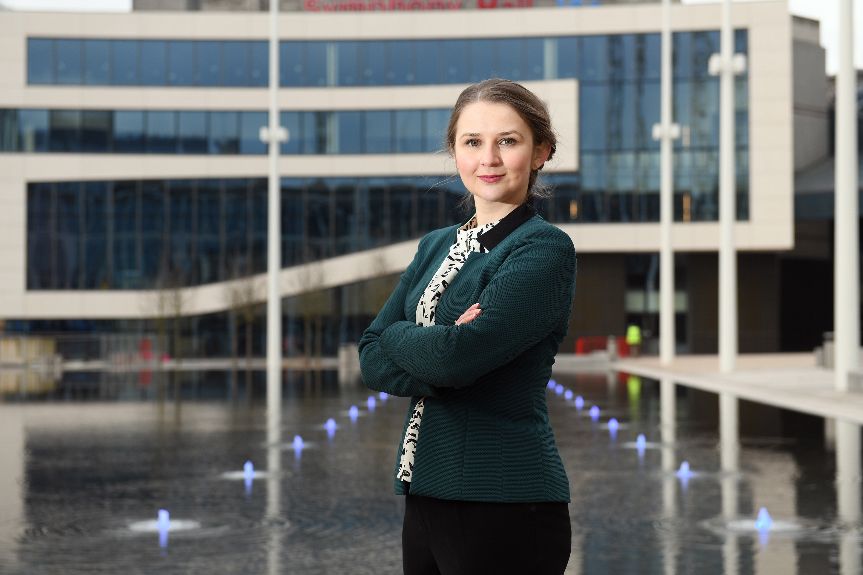Russia’s brutal invasion of Ukraine and the consequent energy crisis has tested the resilience of the West Midlands economy – but “significant opportunities” lie ahead for the region’s business sector. The annual Birmingham Economic Review produced by Greater Birmingham Chambers of Commerce and the University of Birmingham City Region Economic and Development Institute (City-REDI) reveals that the region is well placed to counter ‘once in a generation’ events such as the energy crisis and make Birmingham the best location for business ambitions.
The report launches this morning with an event at The Exchange in Birmingham city centre. Guest speakers include Professor Adam Tickell, vice-chancellor and principal at University of Birmingham, Birmingham City Council’s deputy leader Brigid Jones and chair of the West Midlands Combined Authority’s Race Equality Taskforce, Yetunde Dania.
Henrietta Brealey, the GBCC (Greater Birmingham Chambers of Commerce) chief executive, said: “Brexit, Covid-19; recent years’ editions of the Birmingham Economic Review have all opened with reflections on once in a generation events, unprecedented global disruptions and their impact on the local business community.
“And following Russia’s brutal invasion of Ukraine precipitating an energy crisis this, our sixth edition of the Birmingham Economic review, continues that extraordinary precedent. The resilience of the local business community continues to be tested but there remain significant opportunities for the city region, not least in ensuring we make the most of the legacy benefits of the Birmingham 2022 Commonwealth Games.
“We must also maximise the connectivity benefits of investment in both HS2 and localised transport infrastructure, and capitalise on associated opportunities in business decarbonisation and energy resilience.
“While challenges persist, we are encouraged to see positive sentiment about the future of the region reflected in commentary throughout this report from academics, industry leaders and experts.
“As a Chamber, we have championed the voice of local business since 1813 and we will continue to do so throughout the ongoing economic circumstances, with the persevering aim to make Birmingham the best place to start, grow, move and invest in a business.”
Professor Simon Collinson, deputy pro-vice-chancellor for Regional Engagement and Director of City-REDI and WMREDI at the Birmingham Business School, University of Birmingham, said: “The UK has now experienced a series of economic shocks from Brexit, through the Covid pandemic, the Ukraine situation and subsequent increases in energy costs and food prices to ongoing uncertainties around interest rates, debt and the strength of our currency.
“The West Midlands region has been hit harder than most by the effects of these shocks. Regional GVA declined by 11.8 per cent in 2020 and recovery has been slower than in other UK regions.
“Once again, lower income communities are feeling the impact most and we are seeing a growing polarisation between deprived communities and those with the capital assets, skills and income to ride through the downturn.
“There are significant growth opportunities in the region, many of which would also improve inclusivity. Future growth, which is sustainable and inclusive, partly depends on improvements in our regional innovation infrastructure, which in turn depend on improvements in our skills base,”
The report cites a number of challenges facing the business sector, including record numbers of firms under pressure to raise prices driven by energy costs and staff shortages. Meanwhile, the cost of living crisis is biting as inflation soared to 9.9 per cent in August, driven by price surges in food, energy and fuel.
Conversely, skills attainment continues to improve in the region, with the number of people at NVQ4+ increasing from 31.8 per cent in 2017 to 39.7 per cent in 2022. And regional unemployment rates decreased from pandemic highs, with the West Midlands rate for the three months to July 2022 at 4.7 per cent, down from 6.5 per cent for the fourth quarter of 2020.
Other positive developments outlined in the report include the legacy of the Birmingham 2022 Commonwealth Games. “It’s estimated hundreds of millions tuned in globally to watch the Games. Almost £800 million of public investment continues to drive regeneration and investment across the city and the Business and Tourism Programme aims to continue the legacy of the Games by promoting the region’s reputation as a leading destination for tourism, trade and investment.”
On HS2, construction of the London to Crewe High Speed 2 route is well underway, with almost 25,000 jobs, over 800 apprentices and more than 2,400 UK-registered businesses already involved.
Meanwhile, on further investment in sustainable transport, the Department of Transport has confirmed a five-year, £1.05 billion City Region Sustainable Transport Settlement for the West Midlands Combined Authority, supporting further extension of the Metro, improvements to bus services, development of new rail stations, the improvement of local networks and other upgrades.
On the economy, Oxford Economics is forecasting Greater Birmingham’s GVA to be £56 billion this year, above the pre-pandemic level and to subsequently grow at an annual rate of 1.4 per cent to £71.8 billion by 2040.
The forecasted rise would help offset Greater Birmingham’s 11.8 per cent decline in GVA in 2020, when it contributed an estimated £52.6 billion to the national economy, accounting for 3.1 per cent of England’s total. In 2020, workers across Greater Birmingham produced £33.80 of GVA per hour of work compared to the UK average of £37.73.












